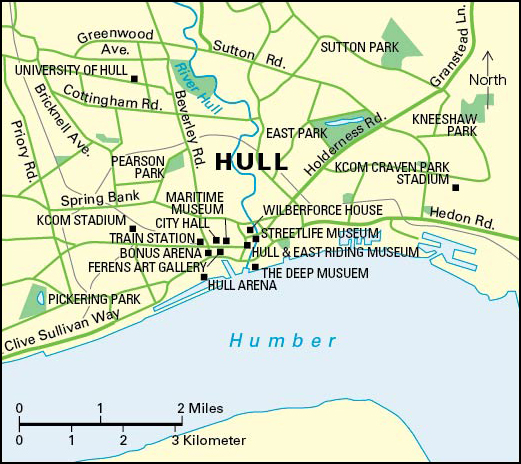Hull has been one of England’s leading industrial ports since it was founded by King Edward I in 1299. The city, also called Kingston-upon-Hull, lies in northeastern England, at the point where the River Hull flows into the River Humber. The city is part of the Kingston-upon-Hull Unitary Authority, a local government area that has a population of 267,104.

Hull is an important manufacturing center. Its factories produce aircraft, beverages, chemicals, food products, and trailers. Hull’s original port area extends about 7 miles (11 kilometers) along the Humber. The port serves passenger and cargo ship lines between Hull and Europoort, a vast harbor in Rotterdam in the Netherlands. One of the world’s longest single-span suspension bridges crosses the Humber near the city. Hull also has two universities. The German Air Force caused extensive damage to Hull during World War II (1939-1945).
